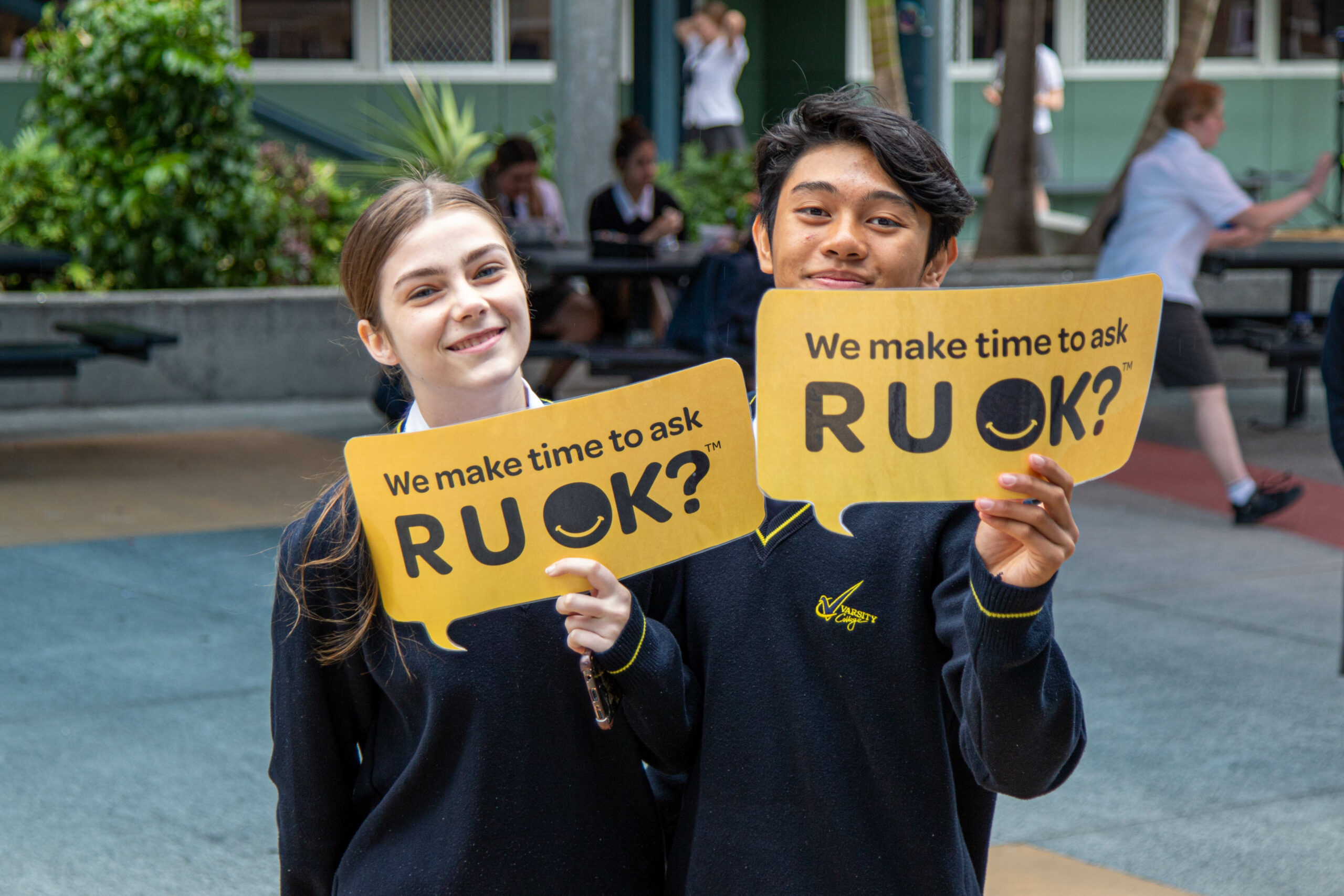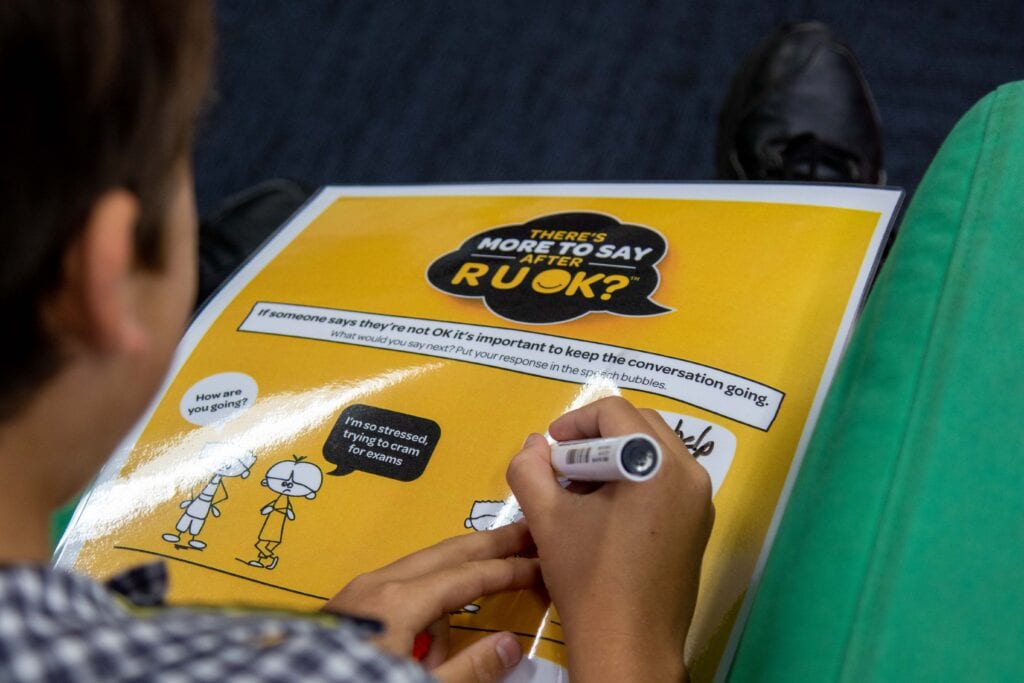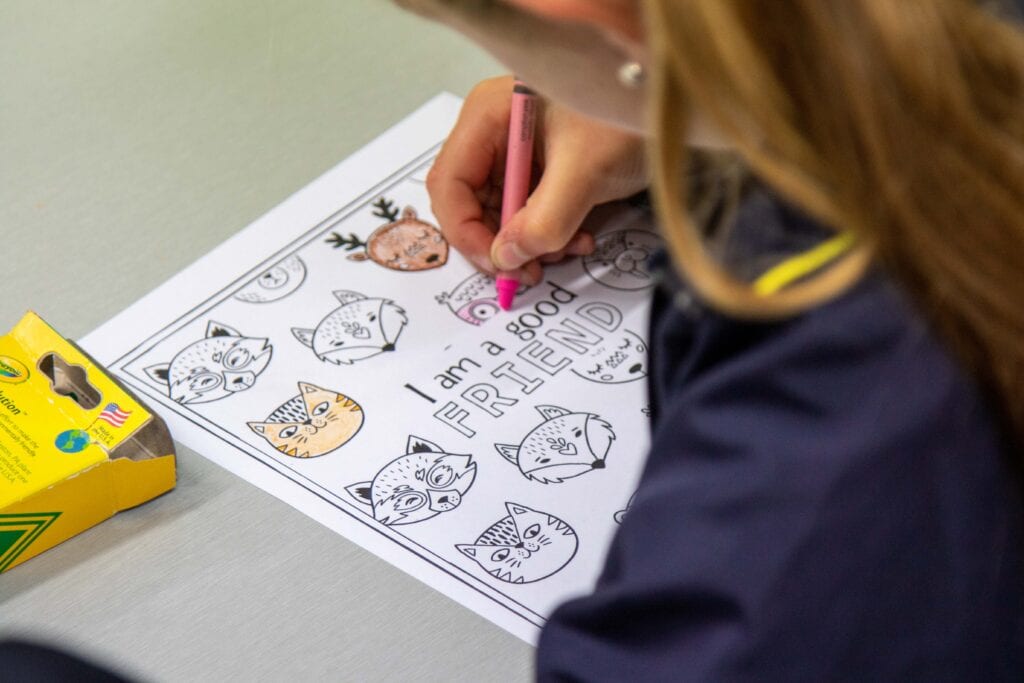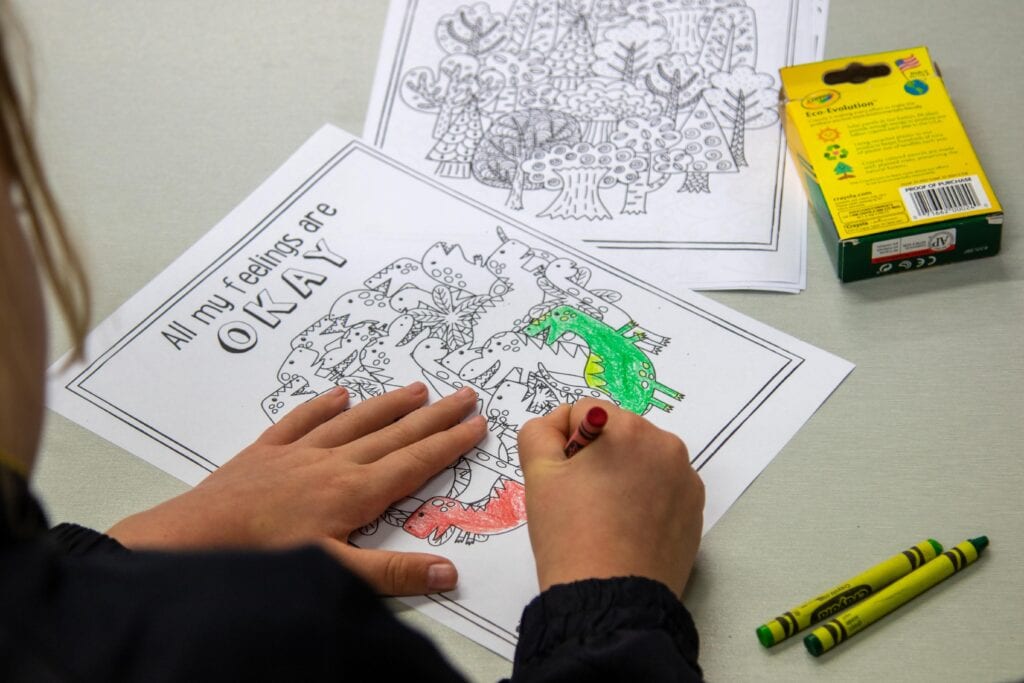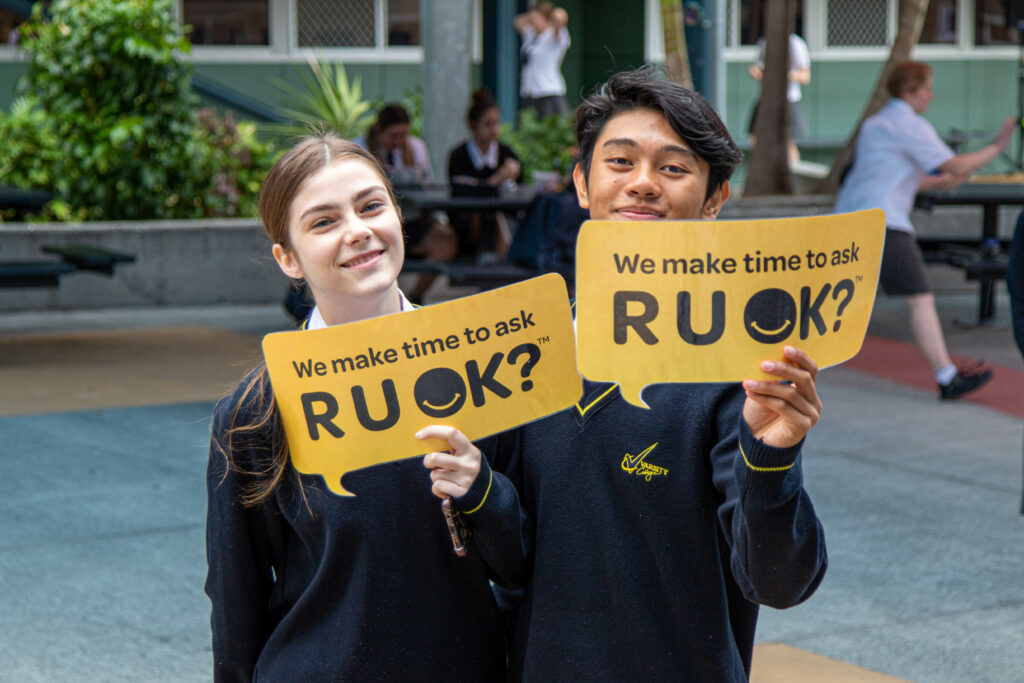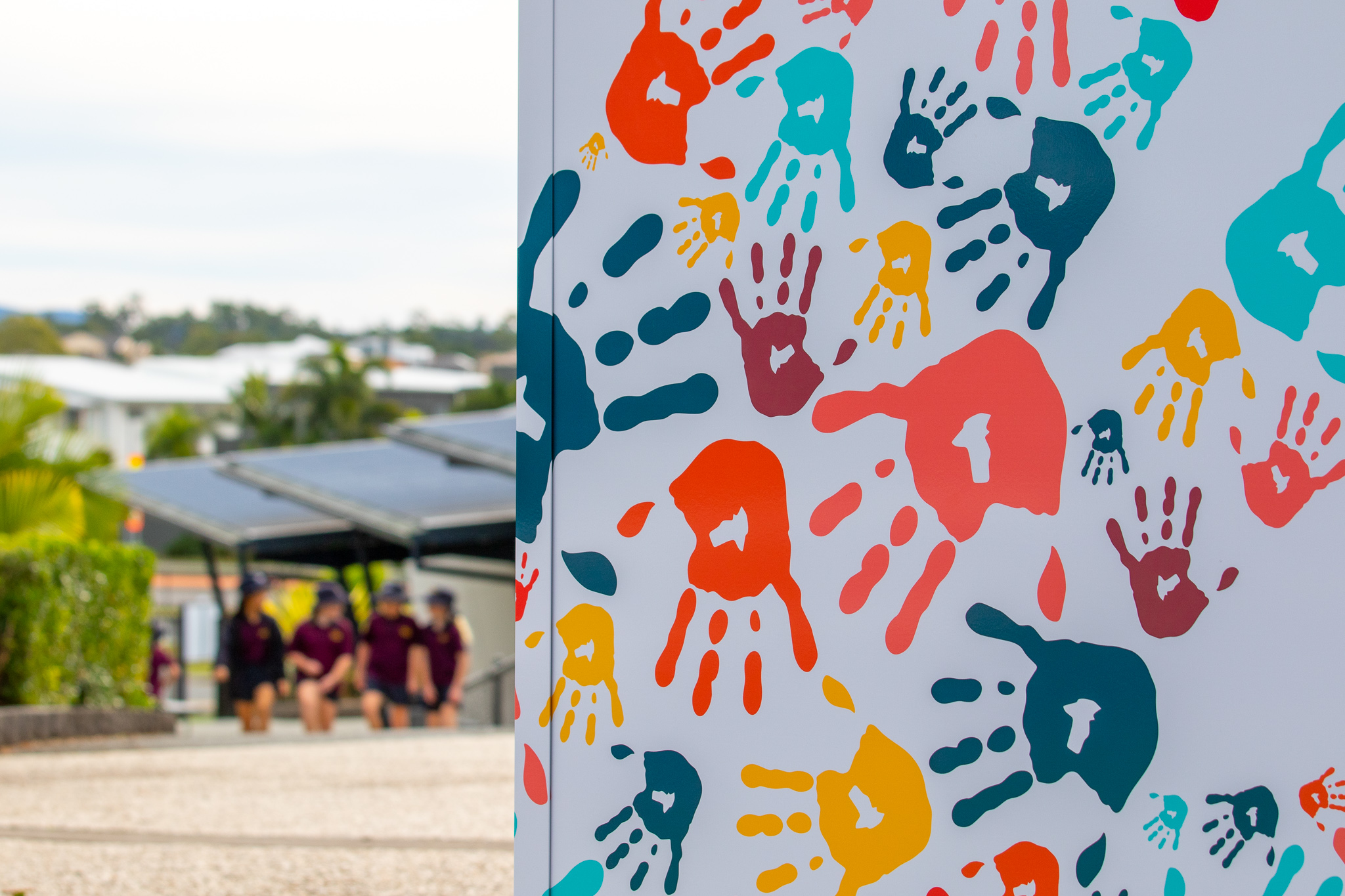Our fabulously talented music teacher Louise Kelly has penned and performed a song for R U OK? Day that is so catchy our kids will be singing it for some time to come!
Our activities on both the Primary and Secondary campuses today highlighted the importance of reminding everyone that every day is the day to ask, “Are you OK?” and support those struggling with life’s ups and downs. This year’s message is ‘There’s more to say after R U OK?’ A conversation can make a big difference to friends or family members who are struggling. R U OK? Day is a reminder that a conversation could change a life, so if you think someone you know is struggling, start a conversation and ask the question.
R U OK? has 4 Conversation Steps to help navigate a conversation when someone says, “No, I’m not OK”.
These steps are:
1 Ask
2 Listen
3 Encourage action
4 Check in
A range of circumstances can lead to a child feeling low, including:
• Big life changes like moving house or school
• Experiencing grief or loss
• Being around people going through tough times
• Being bullied
• Arguing with someone
• Problems with school work
• Being bored
• Having a medical condition or chronic illness
• Not sleeping well
• Not exercising enough
• Hormonal changes
• Special needs
Be aware of certain behaviours and signs that can indicate a child might be struggling. The first thing to look out for is changes in behaviour. When people feel low, they often:
• Withdraw from their friends or their family
• Lash out at people and get angry or upset really easily, including towards the people they care about
• Cry or become emotional
• Lose interest in activities and things they usually love
• Have changed sleeping patterns. They might be sleeping all the time, not sleeping much at all, or sleeping at strange hours (such as in the middle of the day)
• Have a changed appetite. They could be eating more than usual, or less.
Children cannot be expected to fix someone’s problems, nor know the best way to help and support. However they can be encouraged to listen to what their friend is saying, let them know they care and tell a teacher, school guidance officer or trusted adult if they are worried about their friend. By promoting an environment of positive peer support and accessing support channels via an adult, children can learn that asking, ‘Are you OK?’ is a key life skill.
Useful contacts when a child is not OK:
• School counsellor
• School nurse – our nurse is still available to students and families during COVID via email at SBYHNGoldCoast@health.qld.gov.au or phone 56 879 183 (press option 5, then 2)
• GP or psychologist
• Kids Helpline on 1800 55 1800
• Lifeline on 13 11 14
• ‘000’ if life is in imminent danger


